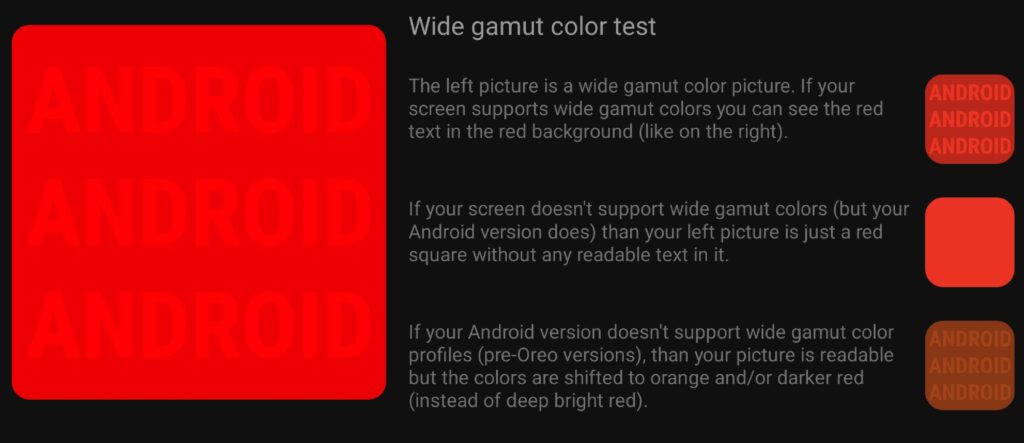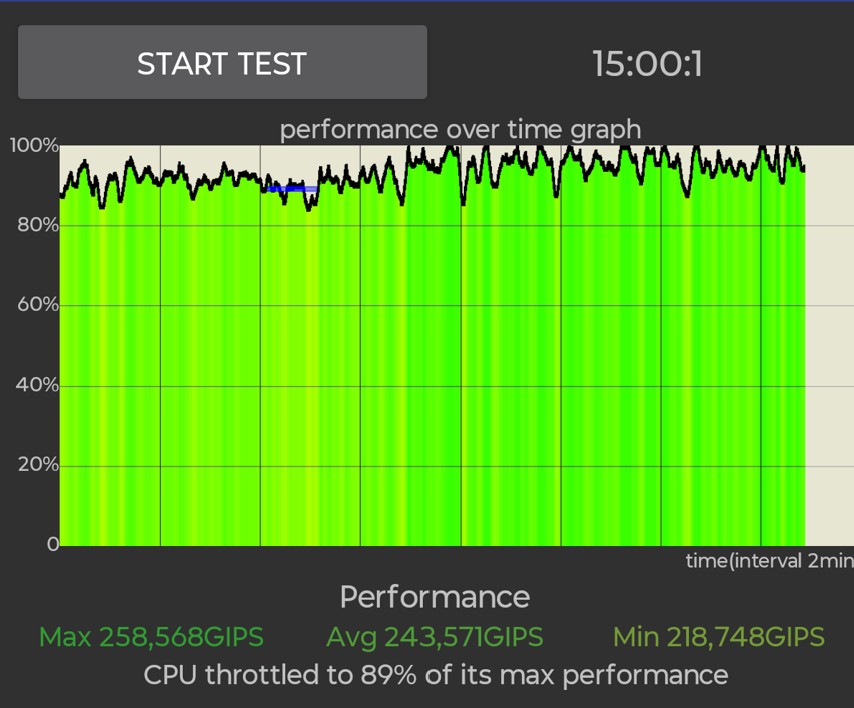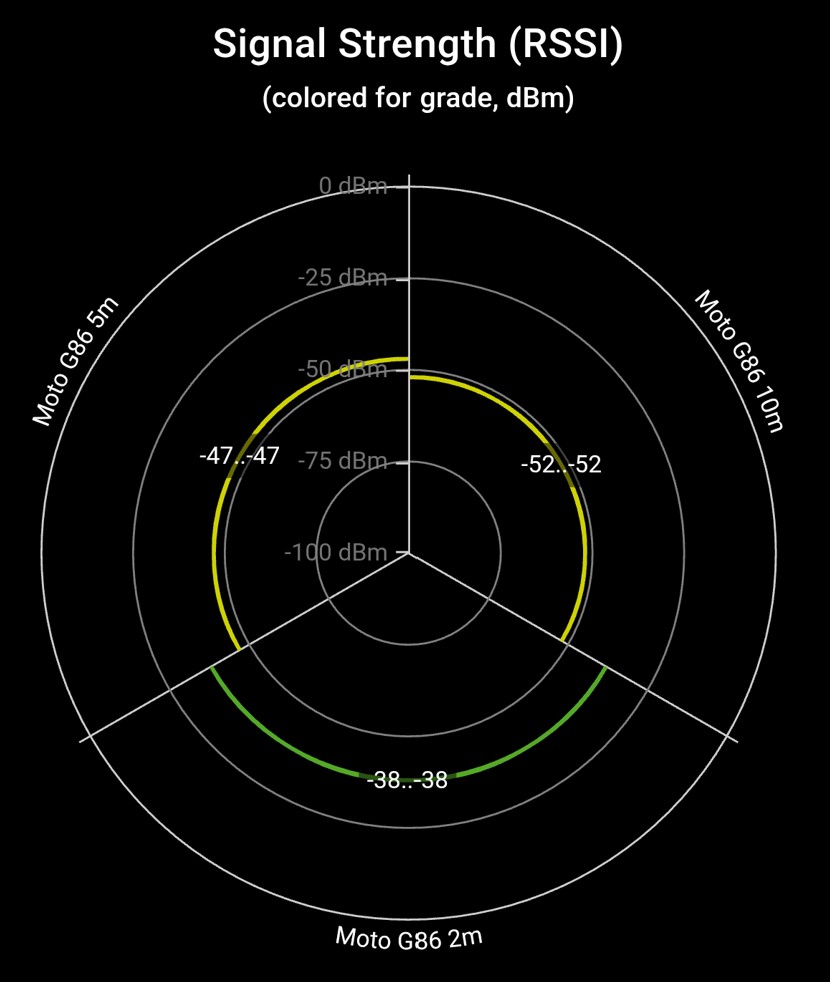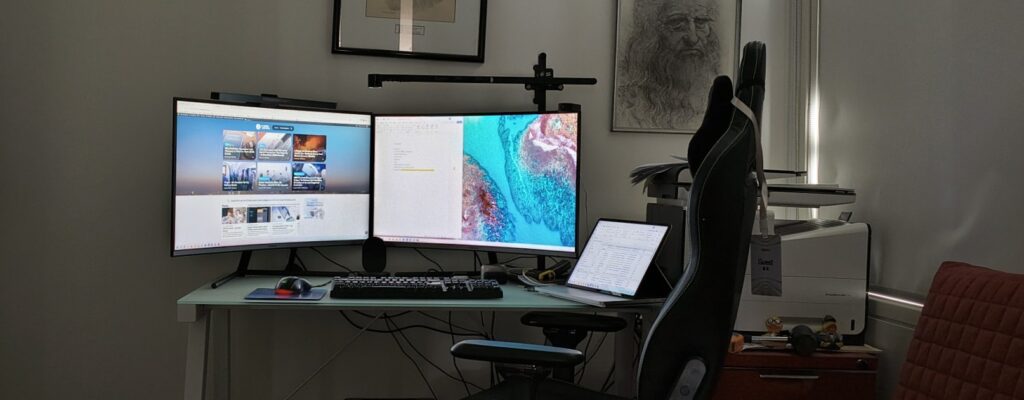The Motorola G86 Power 5G has superior features in its class, offering a decent amount of power, a huge battery, 10-bit pOLED, and a quality camera. As usual, at $499, Motorola has blitzed this segment.
The g-series is its mid-range. Its cookie-cutter design allows for new models to be rolled out from under $200 to this at $499. Essentially, it’s all about a standard design and changing processors, RAM, storage, camera sensors and battery sizes to produce class-leading phones in every price bracket.
The surprise for me – it’s the first MediaTek SoC phone with good phone reception. Until now, that has been a hallmark of Qualcomm-based phones.
Motorola G86 Power 5G Quick Specs
| Screen | 6.7” 2712 x 1220, 120Hz, 4500 nits peak, pOLED |
| Processor | MediaTek Dimensity 7300, 4nm |
| RAM/Storage | 8GB (expandable to a virtual 16GB) 128GB Storage microSD slot |
| Phone | SIM and eSIM City/suburb/regional/rural phone signal strength. |
| Camera | Rear dual-camera 50+8 Flicker sensor 32MP selfie |
| Comms | Wi-Fi 6 BT 5.4 GPS NFC |
| Battery | 6720 mAh battery |
| Build | IP68, IP69, MIL-STD-810H 1.2m drop Gorilla Glass 7i |
| Android policy | Android 15 with 1 OS upgrades and 3 years of bi-monthly security patches. |
As we often say, we don’t know how Motorola does it, but we are sure glad they do.
Australian Review: Motorola G86 Power 5G 8/128GB, SIM and eSIM, Model XT2525-7
Note: This is not the version that has a MediaTek 7400 processor and no eSIM.
| Brand | Motorola |
| Model | Motorola g86 Power |
| Model Number | XT2525-7 |
| RAM/Storage Base | 8/128GB |
| Price base | $499 |
| Warranty months | 24-month |
| Teir | mid-range |
| Website | Product Page |
| From | Harvey Norman, JB Hi-Fi, Good Guys, Officeworks, Bing Lee, Amazon AU, Lenovo |
| Country of Origin | China |
| Company | Owned by Lenovo (Est 1984) – a multinational technology company with its primary operational headquarters in Beijing and Morrisville, North Carolina. It is the world’s largest PC maker. It purchased Motorola Mobility from Google in 2014. Most of Lenovo’s smartphone business is now under the Motorola brand, and it has grand plans to become a ‘top five’ smartphone maker. |
| More | CyberShack Phones news and reviews |
| Test date | August 2025 |
| Ambient temp | 2 to 18° |
| Release | July 2025 |
| Other models not for Australia (Don’t buy) | Must have an R-NZ C-Tick. Only approved resellers – any other outlet is likely to be grey market. |
Ratings
We use the following ratings for many of the items below. CyberShack regards 70/100 as a pass mark. You can click on most images to enlarge them.
- Fail (below expectations), and we will let you know if this affects its use.
- Pass(able) rating that is not as good as it should be.
- Pass (meets expectations).
- Pass ‘+’ rating to show it is good, but does not quite make it to Exceed
- Exceed (surpasses expectations or is the class leader).
How to make the best use of this deep dive review
We tested over 70 different aspects and uncovered nearly 300 key data points about the device. Overall reviews can reach a few thousand words. So, if you are keen, this is the world’s most comprehensive review!
If you want to see our impressions only, they are listed at the beginning of each table. At the end, you will find CyberShack’s view, competitor analysis, and ratings. Ratings are based on the price bracket and expectations, so a $200 phone may score as well as a $2000 phone—we compare like with like.

First Impression – Pantone Cosmic Sky (Purple)
I want to explain why ‘cookie-cutter’ is good in the mid-range price bracket. All the 2025 G-series look similar. Motorola can mix and match internals and come up with phones at a range of prices—kind of the ‘Camry’ of the smartphone world.
The more you pay, the more you get, and at $499, this is the best.
Screen – Exceed
Motorola G86 Power 5G uses a 10-bit, 1.07 billion colour accurate, pOLED (plastic OLED) screen. It has an amazing 4500 nits peak brightness and can playback HDR10+ (not Dolby Vision).
It has Pulse Width Modulation at higher brightness and DC dimming at lower brightness. It is high enough not to affect PWM-sensitive people.
| Size | 6.7″ |
| Type | pOLED |
| Flat, Curve, 2D, 3D | Flat with centre o-hole |
| Resolution | 2712 x 1220 |
| PPI | 446 |
| Ratio | 20:9 |
| Screen to Body % | 90% |
| Colours bits | 10-bit 1.07 billion colours |
| Refresh Hz, adaptive | Smart and Balanced steps 60/90/120Hz Hyper Smooth 120 Hz Efficiency 60Hz |
| Response 120Hz | Not disclosed |
| Nits typical, test | Not disclosed. Test: 440 nits typical |
| Nits max, test | Claim Max: 1500 Test: 1410 Claim Peak: 4500 Test: 3850 in 5% window – would be higher in 2% |
| Contrast | Infinite |
| sRGB | Not disclosed Test: 94% |
| DCI-P3 | Claim 100% Test: 87.3% |
| Rec 2020 or other | Natural and saturated plus temperature adjustment |
| Delta E (<4 is excellent) | 1.1 |
| HDR Level | Capable of HDR10+ (not Dolby Vision) playback |
| SDR Upscale | No |
| Blue Light control | No |
| PWM if known | 733 Hz with an amplitude depth of 10% Brightness is controlled with DC dimming at lower levels. PWM-sensitive users should not be affected. |
| Daylight readable | Yes |
| Always on Display | Yes |
| Edge display | No |
| Accessibility | Usual Android features |
| DRM | L1 for FHD HDR playback |
| Gaming | GtG <2ms and a decent SoC means it will play most games at medium frame rates. |
| Screen protection | Gorilla Glass 7i, Mohs hardness 6, 1.2m drop resistant |
| Comment | Excellent 10-bit/1.07 billion colour screen with accurate colours, no banding and way better than the 8-bit screens used by Samsung, Google and Apple. |





Processor – Pass+
It uses a low-energy 4nm processor, roughly equivalent to a Qualcomm SD6 Gen 3 – a good mid-range processor for everyday use. It saves cost by using 128GB storage and having a dedicated micro-SD slot instead.
It is not an ‘AI’ phone, but the dedicated NPU helps in photography and some phone services. It does not have Google Circle to Search or Moto AI features.
| Type | MediaTek Dimensity 7300 |
| nm | 4nm |
| Cores | 4 x 2.5 GHz & 4 x 2.0 GHz |
| GPU | Mali-G615 MP2 (1047 MHz) |
| Modem | MediaTek |
| AI | MediaTek NPU 550 Geekbench AI CPU: 848/849/1827 GPU: 495/733/606 NNAPI: 520/1259/2563 AI Benchmark: 577 AiTuTu: 98,017 GFLOPS: 14.64 GINOPS: 16.72 |
| AnTuTu | 659575 |
| Geekbench 6 Single-core | 1055 – Faster than SD860 and slower than an Exynos 2100 |
| Geekbench 6 multi-core | 2956 – About the same as Exynos 2100 |
| Like | Benchmarks Between Exynos 1380 and SD6 Gen 3 |
| GPU Test | |
| Open CL | 2598 |
| Like | SD6 Gen 3 |
| Vulcan | 2530 |
| RAM, type | 8GB LPDDR4X and virtual expansion to 16GB using a slower SSD. |
| Storage, free, type | 128GB uMCP (90GB free) |
| micro-SD | Dedicated slot to 1TB |
| CPDT internal seq. Read MBps sustained/peak | 906 (Max 1030) |
| CPDT internal seq. write MBps sustained/peak | 340 (Max 408) |
| CPDT microSD read, write MBps | 80/45 as mountable storage |
| CPDT external (mountable?) MBps | 26/22 Mountable OTG |
| Comment | All are fit for purpose and price, and microSD is a nice bonus. |
Throttle test – Pass+
Excellent thermal management means the phone does not slow down under load and stays quite cool.
| Max GIPS | 258568 |
| Average GIPS | 243571 |
| Minimum GIPS | 218748 |
| % Throttle | 11% |
| CPU Temp | 50° |
| Comment | Excellent thermal management |

Comms – Pass
While it is Wi-Fi 6 AX, it behaves like Wi-Fi 5 N with maximum Rx/Tx speeds of 479Mbps. You can expect 1200 and 2400 from other Wi-Fi 6 devices. Technically, it only has 1Tx and 1 Rx antenna and has only implemented 64 QAM. It’s no big deal for typical users, but heavy users (gamers) will need faster Wi-Fi.
| Wi-Fi Type, model | Wi-Fi 6 AX 2.4/5 GHz |
| Test 2m -dBm, Rx/Tx Mbps | -38/479/479 |
| Test 5m | -47/463 to 479/479 |
| Test 10m | -52/479/384 to 464 |
| BT Type | 5.4 |
| GPS single | GPS, Glonass, GALILEO, Beidou, QZSS Accuracy 2m OK for in-car use |
| USB type | USB-C 2.0 480Mbps |
| ALT DP, DeX, Ready For | No – Miracast only |
| NFC | Yes |
| Ultra-wideband | No |
| Sensors | |
| Accelerometer | Yes – combo with Gyro is very sensitive. |
| Gyro | Yes |
| e-Compass | Yes |
| Barometer | |
| Gravity | |
| Pedometer | |
| Ambient light | Yes |
| Hall sensor | |
| Proximity | Yes |
| Other | SAR Fingerprint ultrasonic under glass |
| Comment | Very slow Wi-Fi Rx/Tx speeds |




4/5G – Surprisingly strong – Pass+
MediaTek had been trying to improve its modems, and this is the first that has found all four towers at usable signal strengths. It means that 4G will be good for city, suburbs, and regional use. It may be OK for rural use too.
| SIM | SIM and eSIM |
| Active | DSDS – dual sim, dual standby (one at a time) |
| Ringtone | Dual – excellent for travellers |
| VoLTE | Yes |
| Wi-Fi calling | Yes |
| 4G Bands | 1/2/3/5/7/8/20/26/28/32/38/40/41/42/71 |
| Comment | All Australian 4G bands |
| 5G sub-6Ghz | n1/n3/n5/n7/n8/n20/n26/n28/n38/n40/n41/ n71/ n77/n78 |
| Comment | All Australian 5G sub-6 and low bands |
| mmWave | No |
| Test Boost Mobile, Telstra | |
| DL/UL, ms | 50/40/32ms above average |
| Tower 1 -dBm, fW or pW | 4G Band 3: -77 to -80. From 10 to 20 pW ‘5G Band 1: -101 and 80fW (not usable) |
| Tower 2 | 4G Band 28: -82 to -83. From 5 to 6.3 pW 5G Band 7: -103, 50 fW |
| Tower 3 | 4G Band 28: -87, 2pW 5G: not usable |
| Tower 4 | 4G Band 28: -100 to -103, 50 to 100 fW (usable) 5G: not usable |
| Indoor | 4G Band 3: -99 to -113, 50fW to 6 fW (you may need to use Wi-Fi calling) |
| Comment | MediaTek have certainly improved the modem because I don’t recall any MT modems getting more than two towers. It is better than city and the suburbs, so we will add regional use. It’s probably fine for rural use as well. |
Battery – Pass+
It uses the new Silicon/Carbon Si/C anode that crams 20-30% more into the same battery size as Li-Po. We don’t have any benchmarks for longevity, but Motorola claims 1000 recharge cycles, which is two to three times what you expect for a $499 phone.
No charger is supplied. You need at least a 10V/3A/30W PD charger and a 3A cable (supplied) for fast charge.
Typical users may get up to two days of use, and heavy users may get 8-10 hours.
| mAh | 6720 New Silicon/Carbon Si/C anode (not disclosed) Claim: 1000 full recharge cycles Claim: 53 hours |
| Charger, type, supplied | 30W capable 10V/3A/30W or 9V/3A/27W |
| PD, QC level | PD 2.0 PPS capable |
| Qi, wattage | No |
| Reverse Qi or cable | No |
| Test (60Hz or adaptive screen) | Adaptive |
| Charge % 30mins | 42% |
| Charge 0-100% | 1 hour 36 minutes |
| Charge Qi | N/A |
| Charge 5V, 2A | <4 hours |
| Video loop 50%, aeroplane mode | 23 hours 37 minutes (This is a legitimate reading – not affected by AI) |
| PC Mark 3 battery | 15 hours 47 minutes Accubattery 17 hours 40 minutes |
| GFX Bench Manhattan battery | Would not run |
| GFX Bench T-Rex | 481.7 minutes (8 hours) 4658 frames |
| Drain 100-0% full load screen on | 5 hours Accubattery 4 hours 57 minutes |
| mA Full load screen on | 1350-1500mA |
| mA Watt idle Screen on | 350-400mA |
| Estimate loss at max screen refresh | Auto mode maximises battery life, so we expect about a 20% penalty should you fix on 120Hz |
| Estimate typical use | Great battery life and should have 2 days of typical use between charges. |
| Comment | Si/C is a new form of battery that fits 20% or more into the same space. While 1000 recharge cycles are twice as many as Lithium-Ion or Li-Po, longevity is yet to be proven. |
Sound Hardware – Pass
We break sound into sound hardware and sound signature. This is a typical MediaTek SoC setup using its DSP, DAC, Dolby Atmos decoder and stereo amps.
It does the job, is quite loud, and hands-free is adequate. All fit-for-purpose.
| Speakers | Top forward, up-firing and bottom down-firing stereo. |
| Tuning | No |
| AMP | MediaTek – no specs |
| Dolby Atmos decode | Dolby Atmos decode to 2.0 speakers. |
| Hi-Res | No |
| 3.5mm | No, but has a USB-C DAC for USB headphones. |
| BT Codecs | SBC, AAC, aptX |
| Multipoint | Can connect to two devices |
| Dolby Atmos (DA) | Yes – Spatial, Smart Audio, Music, Movie, Game, Podcast, Custom |
| EQ | Yes, all DA presets and custom can be altered via an EQ with manual, brilliant treble, bass boost and vocal boost. |
| Mics | Dual with noise-cancelling |
| Test dB – all on EQ flat DA off | |
| Volume max | 80 |
| Media (music) | 89 |
| Ring | 80 |
| Alarm | 80 |
| Notifications | 80 |
| Earpiece | 67 |
| Hands-free | Dual mics and some noise-cancelling with adequate volume. |
| BT headphones | Excellent left-right separation and DA make quite a difference with DA content. Also has a 2.0 to spatial sound virtualiser. |
Sound Quality – Pass
Few phones get more than a pass because it is impossible to get more fidelity out of the micro speakers.
There is almost no bass, strong mid (clear voice) and low treble and almost no real high treble.

| Deep Bass 20-40Hz | Nil |
| Middle Bass 40-100Hz | A little bit of mid bass starting around 80 Hz |
| High Bass 100-200Hz | Very slow build to 400 Hz |
| Low Mid 200-400Hz | Very slow build to 400 Hz |
| Mid 400-1000Hz | Flat to 10 kHz |
| High-Mid 1-2kHz | Flat to 10 kHz |
| Low Treble 2-4kHz | Flat to 10 kHz |
| Mid Treble 4-6kHz | Flat to 10 kHz |
| High Treble 6-10kHz | Flat to 10 kHz |
| Dog Whistle 10-20kHz | Slight dip and flat to 15 kHz, then big dip |
| Sound Signature type | This is a mid-signature (bass recessed, mid boosted, treble recessed) for a clear voice. It’s not as bad as some Motorolas, as there is a slight amount of bass and some high treble. |
| Soundstage | As wide as the phone. DA content widens it a little and adds limited 3D spatial height. Well-balanced top and bottom speakers. |
| Comment | The sound signature is above average, helped by a little high bass and treble. |
| More reading | How to tell if you have good music – sound signature is the key (AV guide) |
Build – Pass+
The build is incredibly good for a $499 phone. It almost earns Exceed as it has IP68, IP69, MIL-STD-8910H, Gorilla Glass 7i, and 1.2m drop resistance. It does not lose points for no charger inbox (any phone should as this is about $30 more).
| Size (H X W x D) | 161.21 x 74.74 x 8.65 mm |
| Weight grams | 195 |
| Front glass | Gorilla Glass 7i Mohs hardness 6 |
| Rear material | Soft Luxe Texture |
| Frame | Plastic |
| IP rating | IP68 1.5m for 30 minutes IP69 MIL-STD-810H Claim: Drop-resistant 1.2m |
| Colours | Pantone Spellbound Pantone Cosmic Sky |
| Pen, Stylus support | No |
| In the box | |
| Charger | No |
| USB cable | USB-A to USB-C 3W capable cable |
| Buds | No |
| Bumper cover | Yes – colour matched. |
| Comment | No charger, but very well made and relatively thin. |
OS – Pass
It has Android 15 and one OS update, which is why it passes, as other brands offer more. Three years of security patches is also shorter than the average.
| Android | 15 |
| Security patch date | 1 July |
| UI | Hello UX Moto App: Personalise, Display, Gestures, Moto Secure, Play, Tips Moto Secure Family Space Games Moto Unplugged Smart Connect (for 8 GB/12 GB) |
| OS upgrade policy | 1 year |
| Security patch policy | 3 years |
| Bloatware | Pure Android – all Google Apps. You can uninstall Facebook and other bloatware. |
| Other | Google Apps (necessary) and Moto Apps] |
| Comment | 2+1+3 Warranty/OS upgrade/Security patches are adequate for the price. |
| Security | |
| Fingerprint sensor location, type | Under Glass optical |
| Face ID | Yes, 2D only |
| Other | Lenovo ThinkShield is more for enterprise use. |
Motorola G86 Power 5G rear camera – Pass+
It has an entry-level Sony LYTIA LT-600 sensor (there are the 700, 800 and 900-series above this). It is what we would expect on a phone of this price, and it takes pretty good photos in both day and office light. It does not have HDR for photos or video so can lose details in the shadows or highlights.
The Ultrawide is an 8MP Omnivision Fixed Focus, which doubles as a macro. It is not colour consistent with the primary sensor, but that is not really an issue.
There appears to be a third camera sensor, but it is a flicker sensor that can reduce flickering in photos or videos under artificial light by adjusting the shutter speed.
10X zoom is all digital, and OIS helps stabilise these shots.
It is 4K@30fps capable, but only 1080p@30 has OIS.
Test Photos











Rear camera specs
| Rear Primary | Wide |
| MP | 50MP bins to 12.6 |
| Sensor | Sony LYTIA 600 (IMX882) |
| Focus | All pixel AF in non-HDR mode |
| f-stop | 1.8 |
| um | .8 bins to 1.6 |
| FOV° (stated, actual) | 68.5 to 80.8 |
| Stabilisation | OIS |
| Zoom | 10X Zoom Crop factor 5.3x |
| Rear 2 | Ultra-wide/macro |
| MP | 8MP |
| Sensor | Omnivision OV8D |
| Focus | Fixed |
| f-stop | 2.2 |
| um | 1.12 |
| FOV (stated, actual) | 118° |
| Stabilisation | No |
| Zoom | No |
| Rear 3 | Flicker sensor |
| Video max | 4K@30 1080p@30 OIS/EIS |
| Flash | LED |
| Auto-HDR | No |
| Ultra-Res Night Vision Portrait Panorama Pro Mode Scan Auto Smile Capture Auto Night Vision (for 8GB/12GB) High-res Digital Zoom (Up to 8x) Ultra-Wide Angle Google Lens integration VIDEO Dual Capture Time-lapse (w/ Hyperlapse) Slow motion Audio Zoom Ultra-Wide Angle | |
| QR code reader | Via Google Lens |
| Night mode | AI |
| DXO Mark | N/A |
Motorola G86 Power 5G selfie camera – Pass+
It has a 32MP GalaxyCore sensor binned to 8MP, which is standard for this price bracket.
Selfies have natural skin tones, but fixed focus means you need to be careful. It can do small group selfies.
| Front | Selfie |
| MP | 32MP bins to 8MP |
| Sensor | GalaxyCore GC32e1 |
| Focus | Fixed |
| f-stop | 2.2 |
| um | .7 to 1.4 |
| FOV (stated, actual) | 77 to 89.7 |
| Stabilisation | No |
| Flash | Screen fill |
| Zoom | No |
| Video max | 1080p@30fps |
| Features | Portrait Pro Mode Photo Booth Auto Smile Capture Auto Night Vision (for 8GB/12GB) Gesture Selfie Face Retouch Selfie Photo Mirror |
| Comment | Natural skin tones under day and office light. |
CyberShack’s view: Motorola G86 Power 5G: $499 Fantastic value and almost class-leading everything
If it were not for the low Wi-Fi speed, this would be class-leading in every area. But Wi-Fi speed is largely unimportant as long as it works!
At $499, it has competition from Nothing Phone (2a) Plus, Nothing CMF Phone 2 Pro, and Samsung Galaxy A26. Bang for buck, this is well ahead of the pack. The serious contender is the $449 (on special – WAS $599) OPPO Reno 13 F 5G – the poor bushies’ new friend.
Motorola G86 Power 5G ratings 87/100
| Features | 85 |
| It shows what you can do to make a great mid-range phone with plenty of power, a big battery, a decent camera, and surprisingly good phone reception. | |
| Value | 90 |
| At $499, it has competition from Nothing Phone (2a) Plus, Nothing CMF Phone 2 Pro, and Samsung Galaxy A26. Bang for buck, this is well ahead of the pack. | |
| Performance | 85 |
| Good SoC and reasonably low throttling. Excellent phone signal strength. | |
| Ease of Use | 85 |
| A 2-year warranty is good. 1 OS upgrade is OK. | |
| Design | 90 |
| Pantone collaboration means colourful phones. IP68/69 and MIL-STD are excellent | |
| Rating out of 10 | 87 |
| Final comment | The more I used this, the more I liked it. It has everything Joe and Jane Average need and exceptional phone reception. Well done, Motorola. |
CyberShack Verdict
Motorola G86 Power 5G:
$499










1 comment
Michael Larsen
I wanted a bigger battery (longer battery time) g84 is good but not super
201 aud with shipping (113.61 euros) + 6 month subscribtion free phone calls and 200gb data 112 aud or 63.5 euros. Total after 6 month 177.11 euros
Getting 100 euros for my G84, it’s not a bad deal to get a bigger battery, buying it from a store not a phone company the price with not subscribtion, it’s just under 300 euros or 528 aud